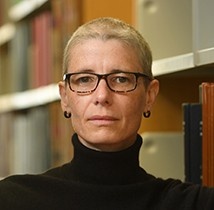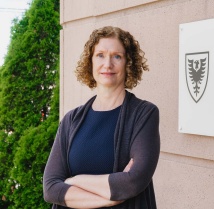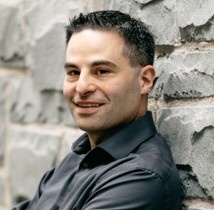Criminal Justice Program
A Holistic Approach
At the Schulich School of Law, we acknowledge the importance of substantive and procedural criminal law and also recognize that criminal justice interacts in a variety of ways with society and individuals. Our research and teaching look at what influences criminal justice, and who criminal justice affects, while being alert to alternatives that may be better suited to respond to factors that influence crime.
We are concerned about the impacts the criminal justice system has on marginalized communities and individuals, both as victims and perpetrators. We believe that criminal justice must be understood in a social justice context, and that community engagement is central to a fair and transparent criminal justice process.
If you believe that criminal justice goes beyond enforcing the law to examine the factors behind why crimes happen, and you have passion to serve the community and make a difference, then Schulich Law is the place for you.
Specialize in Criminal Justice
We are committed to providing a broad, practical, and well-rounded educational experience to students studying criminal justice. Our course offerings include both large and small group classes that combine lectures, discussions, and active learning techniques. They provide training in trial and appellate advocacy skills, in-depth approaches to advanced concepts, and substantial opportunities for experiential and clinical learning.
Our Criminal Justice Specialization gives JD students an opportunity to focus on this area, and earn a certificate upon graduation.��
Students interested in registering for the Criminal Justice Specialization Certificate must complete the registration form found��.�� Once completed, send it to criminaljustice@dal.ca��as early as possible and ideally at the start of their second year.
For questions about the Criminial Justice specialization, please email��criminaljustice@dal.ca.
Specialization Requirements
To graduate with a specialization in Criminal Justice, students must:
- Complete the mandatory core criminal law courses��LAWS 2008 Evidence��and��LAWS 2091 Criminal Procedure��(8 credit hours total);
- Complete 8 credit hours of electives chosen from the lists below. Students must take at least 1 course from each basket.����
Experiential Learning
Our students have many opportunities to engage with the community, and get practical experience:
- Third-year students can spend a term working at the��Dalhousie Legal Aid Service (DLAS)��where they may participate in youth sentencings, bail hearings, trials, peace bond applications and prison law work.
- Internships, both in Canada and abroad, can offer opportunites to work with organizations dedicated to criminal justice.
- Pro Bono Dalhousie provides an opportunity for 180 student volunteers to work with more than 50 community organizations, 15 of which currently deal with criminal justice issues including the Elizabeth Fry Society, the Canadian Prison Law Association and Innocence Canada.
- We participate in both the��Sopinka and Gale Cup moots, which focus on criminal matters.
- In the��, students shadow a defence lawyer, Crown attorney or judge for a term, attending trials and gaining exposure to the criminal justice system.��
- In the�� students learn through field activities with crown attorneys who specialize in this area, and other professionals involved in sexual assault cases.
- In the�� and ��courses, students are given practical exposure to the entire process of conducting an appeal or a trial in a criminal case.��
Our Faculty
Schulich Law's criminal justice faculty members are world renowned experts in their field. Students have the opportunity to work one-on-one with professors who are passionately devoted to mentoring students.
Phone: 902-494-1005
Mailing Address:
PO Box 15000 Halifax, Nova Scotia B3H 4R2

Phone: 902-494-1012
Mailing Address:
PO Box 15000 Halifax, Nova Scotia B3H 4R2

Phone: 902-494-1296
Mailing Address:
6061 University Avenue
PO Box 15000
Halifax, Nova Scotia B3H 4R2

Phone: 902-494-1003
Mailing Address:
PO Box 15000 Halifax, Nova Scotia B3H 4R2

Phone: 902-494-1013
Mailing Address:
PO Box 15000 Halifax, Nova Scotia B3H 4R2

Phone: 902-494-2863
Mailing Address:
PO Box 15000 Halifax, Nova Scotia B3H 4R2

Career Paths
The opportunities to work in this interesting and complex area of the law are broad and diverse. Whether your goal is to work as a criminal lawyer, for a non-governmental organization, as an academic, or as a legal policy analyst, your education at Schulich Law will prepare you for the career path of your choice. Many of our alumni have gone on to distinguished careers in the criminal justice sphere.
A Recent Graduate's Perspective

The Criminal Justice Certificate provides students with the opportunity to receive a well-rounded legal education with a focus on courses that delve into the many interesting facets of criminal law and criminal justice.
~ALY SUTTON (JD '21)
An Alumni Perspective

This new certificate is a first for the country and will provide vital opportunities for students, who will benefit in ways that will undoubtedly lead us into the future."
~SENATOR KIM PATE (LLB '84)






